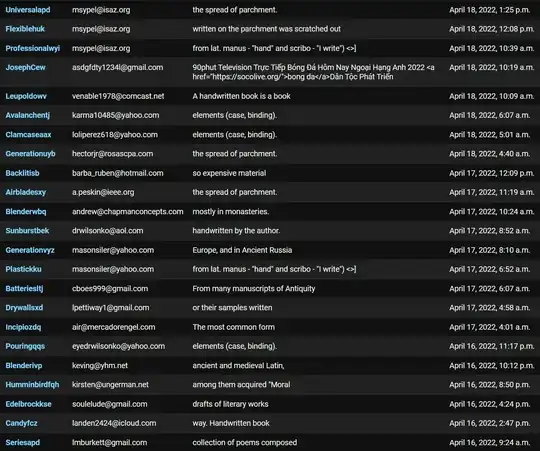I recently built a website using Django. It has a contact form and some minimal pages about me and my work portfolio. I have been getting a few spam messages a day and their content intrigues me (screenshot attached). They are just a few words. Most of them do not contain any links.
Some of the messages are (for where the screenshot is not read)
- the spread of parchment.
- written on the parchment was scratched out
- from lat. manus - "hand" and scribo - "I write") <>]
- A handwritten book is a book
- the spread of parchment.
- so expensive material
... and more, seemingly funny messages.
What are such messages trying to exploit?
PS: I am in the process of adding some anti-spam measures to my contact form - probably a Google reCAPTCHA.
